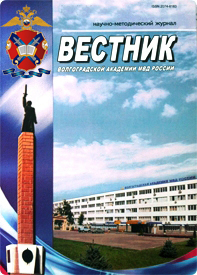The authors of the article have made an attempt to eliminate the gap in the Family Code of the Russian Federation concerning the absence of precisely determined range of persons who may be considered as actual educators of a child. It has become necessary to solve the given problem because the notion "actual educators" has been used in the family legislation for decades but the concept of this term hasn't been defined at the legislative level. There have been changes in the regulation of relations among actual educators and children but only in regard to alimony relations among these persons. There is no exact definition of who may be considered as an actual educator at the doctrinal level either. The authors of the article have identified a list of grounds that can lead to emergence of relations concerning actual upbringing of a child under conditions of modern society development: the absence of parental custody due to the parents' guilty behavior or without it; the absence of parental custody by one of the parents because of his or her guilty behavior or due to other circumstances not depending on him or her and there remains legal connection with another parent properly performing parental duties; the child's adoption by one of the spouses; running a joint household with the child's parent. Identification of grounds for relations appearing between the actual educator and the child has allowed the authors to define the range of persons who can be considered as actual educators. These are persons of full age and capacity who may be related or not related to the child and who properly and voluntarily bring up and maintain a child, when there is no guardianship, adoption or contract for family placement in relation to the children: deprived of care of both or one parent; adopted by one of the spouses.
actual educator, foster child, the form of upbringing, stepfather, stepmother, proper upbringing and maintenance of the child
1. Oficial'nyy internet-portal pravovoy informacii. URL: pravo.gov.ru (data obrascheniya: 23.01.2018).
2. Semeynoe pravo: uchebnik / pod red. E. A. Chefranovoy. M., 2012. 236 s.; Semeynoe pravo Rossii: uchebnik / pod red. L. M. Pchelincevoy. 6-e izd., pererab. M., 2010. 420 s.; Semeynoe pravo: uchebnik / pod red. M. V. Antakol'skoy. 3-e izd., pererab. i dop. M., 2010. 357 s.; Semeynoe pravo: uchebnik / pod red. P. V. Aleksiya, I. V. Petrova, A. N. Kuzbagarova. 4-e izd., pererab. i dop. M., 2009. 202 s.
3. Grazhdanskoe pravo: uchebnik: v 3 t. / pod red. A. P. Sergeeva. M., 2000. S. 490-491.
4. Bol'shoy Yuridicheskiy slovar' / pod red. A. Ya. Suhareva. 3-e izd. M., 2010. 795 s.; Yuridicheskiy enciklopedicheskiy slovar' / pod red. A. Ya. Suhareva. M., 1981. 393 s.
5. Ugolovno-processual'nyy kodeks Rossiyskoy Federacii ot 18 dekabrya 2001 g. № 174-FZ (po sost. na 01.09.2017). Dostup iz sprav.-pravovoy sistemy «Konsul'tantPlyus».









